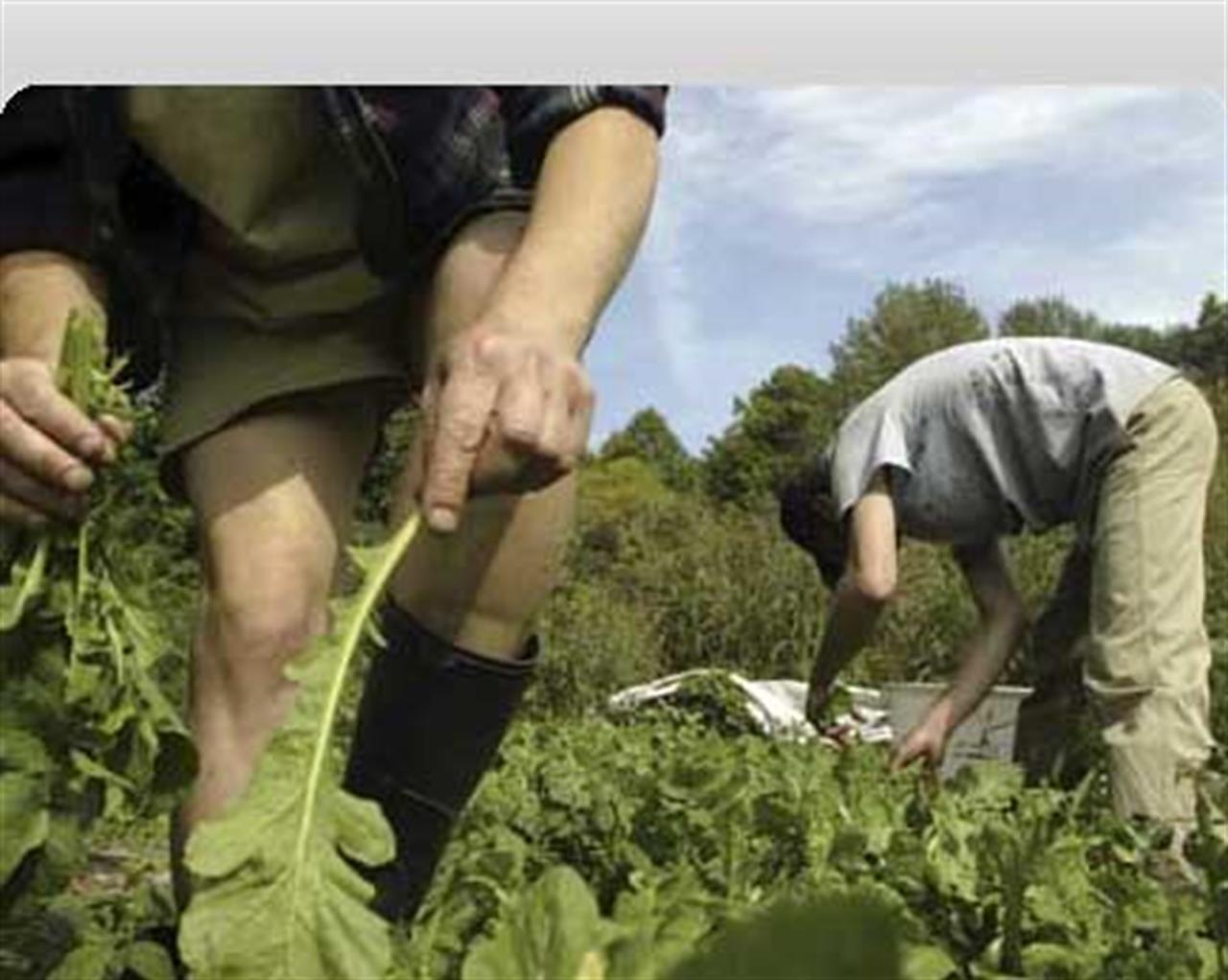Sostenibilità
Could farmers hold the key to reversing global warming?
Interview with Jonathan Smith of Climate Friendly Food.
di Rose Hackman

“Ideally a farmer should be absorbing more carbon dioxide on their farm than they’re emitting,” says Jonathan Smith, co-founder and director of UK based Climate Friendly Food, an initiative which is fighting climate change from the perspective of producers with an aim at revolutionising the whole food production system.
“Farming could become part of the solution in the fight against global warming and no longer part of the problem.”
How so? Read on…
What brought you to want to launch such a particular project?
I am actually an organic grower myself and environmental issues have always meant a lot to me. In the past few years the carbon problem has particularly come to the fore. So I talked to my friend and other founding director, Jenny Hall, and we decided to found this project together. We wanted to try and reduce carbon emissions from food by focusing on farmers and growers, empowering them to be able to do something themselves.
Why did you think there was a need for this?
A lot of the things we read about are government initiatives on reducing carbon emissions, and important as that framework is, I believe it is also necessary to empower the producers so that they can act individually.
How was the carbon calculator for producers, which is on your website, developed?
We had to look at it from a farmer’s perspective, and ask ourselves: what are all the carbon emissions involved and how can carbon be sequestered or absorbed on the farm?
We worked out the scope of what the carbon calculator needed to cover, and collected emission factors that had already been worked out in around 30 or so peer reviewed studies. The spreadsheet which resulted from that exercise is effectively was has become the carbon calculator.
With the carbon calculator, the hard-work is effectively taken away from the farmer and grower – they just have to enter in details about their own farm and the rest is calculated for them.
How enthusiastic have producers been to this initiative? Any hostile reaction?
To be honest at the moment we have only launched our project on the organic growing community. Next year we plan to assail mainstream growers. So far therefore we are catering to a very receptive community. We haven’t had any negative feedback so far, because I think people realise it is such an important issue and can see the benefits. Not just from lowering their emissions and so their costs, but also from marketing their food as “low carb”.
What makes a food climate friendly?
Ideally a farmer should be absorbing more carbon dioxide on their farm than they’re emitting. We’re also looking at practices producers are using and how they can increase their sequestration, mainly through rich soil farming.
What do you mean by this? Could you explain this procedure?
Soil potentially is an enormous carbon sink. When you add organic matter to soil – like manure or compost – because the former is largely comprised of carbon, the soil is actually absorbing carbon dioxide which means that it is effectively stopping that CO2 from going up into the atmosphere. Soil with good organic matter content is also very fertile and therefore supports good crops which is very much the organic approach. If you feed the soil rather than feed the plants, then you will get healthy plants, animals and human beings.
The food chain is responsible for around 30% of carbon emissions – how effective in suppressing these the farming model you propose be?
Potentially very, but we are dependent on two things. One: what kind of food people choose to eat and buy. Two: what the production side of things is looking like. In that case, we believe that every acre of farm land in the country should be absorbing more carbon dioxide than it is emitting. This means that farming could become part of the solution and no longer be part of the problem.
Are you planning on looking at the other side of the coin and working with consumers too?
Once we have properly launched the carbon calculator and started getting the certification of low carbon foods going, the plan is to build up a database of producers so we can give consumers a proper directory. We would also try to combine with that some education work on food impact on the climate, how to use low carbon techniques in your garden and other initiatives down that line.
Any similar projects you know of internationally?
No, but we would be very open to share the tools we have elaborated with other countries.
www.climatefriendlyfood.org.uk
Cosa fa VITA?
Da 30 anni VITA è la testata di riferimento dell’innovazione sociale, dell’attivismo civico e del Terzo settore. Siamo un’impresa sociale senza scopo di lucro: raccontiamo storie, promuoviamo campagne, interpelliamo le imprese, la politica e le istituzioni per promuovere i valori dell’interesse generale e del bene comune. Se riusciamo a farlo è grazie a chi decide di sostenerci.
